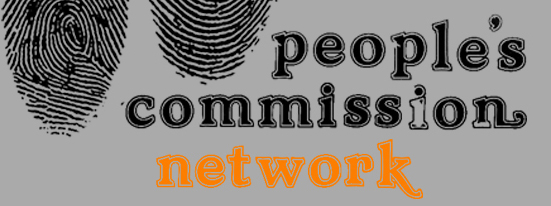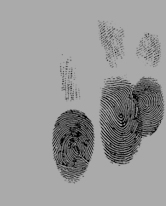Most of this timeline appears in a March 5, 2009 article entitled “Exiled in Khartoum: CSIS
asked Sudan to arrest Canadian, files reveal” written by Globe and Mail Correspondent Paul
Koring. Additional sources, Globe and Mail
1990
Mr. Absoufian Abdelrazik, fleeing the violence of a civil war and coup in Sudan, arrives in
Canada and is granted political refugee status.
1995
He becomes a Canadian citizen.
2000
After the arrest of Ahmed Ressam, the millennium bomber, Mr. Abdelrazik and other Muslims
living in Montreal come under close surveillance by Canadian counter-terrorism agents. Mr.
Abdelrazik says it amounts to harassment so severe that he calls the Montreal police for help. He
is never charged with any crime, denies any connection with al-Qaeda and testifies for the
prosecution at Mr. Ressam's trial.
2003
March 23: He arrives in Khartoum from Montreal, travelling on his Canadian passport to visit
his mother.
September 12: Mr. Abdelrazik is arrested and imprisoned by Sudan.
December (or October): Interrogated by people he identifies as "Canadians." While in
prison, Mr. Abdelrazik says he was repeatedly beaten and tortured. In an affidavit this year, he
admits to telling his interrogators "what they wanted to hear" whether or not it was true.
2004
July: Mr. Abdelrazik is released from prison after 11 months. He was expected to fly home to
Canada with a Lufthansa-Air Canada ticket paid for by his family. A Canadian diplomat was to
escort him on temporary travel papers because his passport had expired.
July 23: The flight home is scrapped at the last minute when Air Canada and Lufthansa refuse
to carry him on the grounds that he has been added to the U.S. no-fly list, even through routing
doesn't involve a U.S. stop. Senior officials in Ottawa order diplomats in Khartoum not to tell Mr.
Abdelrazik about the U.S. no-fly list but to tell him that the government of Canada is powerless to
tell airlines to transport him. He's required to live in a police-owned and monitored house.
July 29: In DFA Case Note 123, senior consular official Odette Gaudet-Fee, says when Mr.
Abdelrazik’s wife inquired about chartering a private plane she was told her the government will
not pay for this. “So, should she get a private plane, there is very little we could do to stop him
from returning to Canada. He would need an EP (emergency passport) and I guess this could be
refused but on what ground.”
September 29: Senior Sudan official warns Canadian diplomats that "Sudan realized however that keeping an innocent man in detention was a human-rights violation. So far, they had
prevented him from having access to news media and HR organizations but this could not go on
forever. He thought that protest and public attention to this story would impact adversely on both
our countries. In particular, it would tarnish Canada's reputation in Arab countries."
October 10: Sudan offers a private aircraft to get him to Canada if Canada will contribute to
costs and provide escorts.
October 31: Canada is not prepared to contribute to the cost of the flight and also not prepared
to provide an escort for Mr. Abdelrazik on the flight.
November 24:Then-PM Paul Martin arrives in Khartoum on a Canadian military Airbus with
seating for more than 150. Embassy officials thwart Mr. Abdelrazik's efforts to meet with PM and
the aircraft leaves with scores of empty seats. A senior official travelling with the prime minister
meets Mr. Abdelrazik.
2005
April 13: "Canada's senior diplomat in Sudan agrees to tell Mr. Abdelrazik "I can assure you
that the Govt of Canada has had no involvement whatsoever in any decision to place your name
on such lists."
May 9: Senior Foreign Affairs diplomat warns that Mr. Abdelrazik "has reached the end of his
rope, he has no money, no future, very little freedom and no hope. Should this case break wide
open in the media, we may have a lot of explaining to do."
July 26: Sudan Minister of Justice issues Mr. Abdelrazik a formal document exonerating him.
We "did not find any evidence'" linking him to terrorism or crime or al-Qaeda.
October 5: With a Canadian delegation scheduled to visit, Mr. Abdelrazik is arrested again
and detained, without charge. Canadian consular access is denied. But an undated and heavily
redacted Canadian Foreign Affairs document marked secret and carrying a CSIS stamp says he
was imprisoned "at our request," but it isn't clear whether that was the first, second or both times.
December 16: In a cable marked secret, diplomats warn Ottawa that "further delay in this case
risks the perception of complacency on the part of the Government should this case become
public, especially given our repeated observations regarding Mr. Abdelrazikis increasingly
desperate frame of mind."
2006
July 20: He is released from prison after 10 months as the Sudanese say they cannot hold an
"innocent" man. A Canadian diplomat, in a message to Ottawa, says he "appears to be a broken
man," but Ottawa tells diplomats to tell Mr. Abdelrazik they won't give him a passport or travel
documents.
July 23: The United States formally designates him a terrorist "for his high-level ties to and
support for the al-Qaeda."
July 31: He's added to UN Security Council terrorist no-fly blacklist by the U.S. All his
personal assets are frozen. The ban, however, specifically exempts travel for return to the country
of citizenship, for the fulfillment of a judicial process and for other justifications (such as for
medical and religious purposes) if allowed by the U.N.
December 16: A secret document sent from Khartoum to senior Foreign Affairs and security
officials in Ottawa says, “Abousfian Abdelrazik was arrested on September 10, 2003 [word
blacked out] recommendation by CSIS, for suspected involvement with terrorist elements.”
2007
May 15: Mr. Abdelrazik is called by the Sudanese secret police for an interrogation by a visiting
FBI anti-terrorist team. He asks for Canadian consular help, but Ottawa expressly forbids
diplomats in Khartoum to escort him. After the interrogation, Canadian diplomats report to
Ottawa that Mr. Abdelrazik was told that "he will never return to Canada" unless he co-operates
fully.
November 6: In the process of examining Abdelrazik’s request for de-listing from the U.N.
list, CSIS declared that it had “no current substantial information regarding Mr. Abdelrazik”.
November 15: RCMP anti-terrorism branch formally tells Harper government that it has
"conducted a review of its files and was unable to locate any current and substantive information
that indicates Mr. Abdelrazik is involved in criminal activity."
2008
February 22: Despite RCMP's exoneration, CSIS's most recent terrorist update summary still
says Abdelrazik received training at the Khalden camp in Afghanistan in 1996 and is important
Islamic Jihad activist."
March 25: Maxime Bernier, the Canadian foreign minister, visits Khartoum. His chief of staff
and MP Deepak Obhrai meet with Mr. Abdelrazik, who lifts his shirt to show scars that he says
were from torture and beatings while in prison.
April: Sean Robertson, a senior foreign affairs official, formally writes to Mr. Abdelrazik's
lawyers assuring them that the government of Canada had already “transmitted our support for
Mr. Abdelrazik's de-listing request to the 1267 Committee,'' (the Security Council resolution
bearing that number that blacklists known al-Qaeda members).
April 18: Sean Robinson, director of consular affairs in the Department of Foreign Affairs,
confirms in writing that “we stand by the commitment” to “ensure that [Mr. Abdelrazik] has an
emergency travel document to facilitate his return to Canada.”
April 20: Senior Transport Canada intelligence and security officials, in a classified document
say, “Senior government of Canada officials should be mindful of the potential reaction of our
U.S. counterparts to Abdelrazik’s return to Canada as he is on the U.S. no-fly list.” Transport
Canada documents state it was the U.S. no-fly lists that prevented Mr. Abdelrazik’s return to
Canada when he was released from prison in July 2005.
April 29: Mr. Abdelrazik seeks refuge in the Canadian embassy in Khartoum. Mr. Bernier
grants him "temporary safe haven," suggesting that he poses no threat to the embassy but may be
at risk of re-imprisonment in Sudan.
September 15: Etihad Airlines agrees to fly Mr. Abdelrazik from Khartoum to Toronto via
Abu Dhabi on this date. But the Canadian government fails to deliver on its long-standing
promise, first made in 2004, that Mr. Abdelrazik, like all Canadian citizens, is entitled to
emergency travel documents to return home.
December 23: Passport Canada adds a new condition -a fully paid-for ticket, not just a
confirmed reservation -must be presented before Mr. Abdelrazik will be issued emergency travel
documents. Mr. Abdelrazik is destitute. The government says it must seize his assets and anyone
who gives him any money is committing a crime.
2009
March 12: One hundred and sixteen Canadians break federal law with the purchase of a $997
plane ticket for Mr. Abdelrazik on April 3. The government is asked to confirm that it will issue
the required travel documents by March 27.
March 20: CSIS posted a request on its website asking SIRC to investigate its role in Mr.
Abdelrazik’s detention in Sudan, hoping to clear itself of allegations that it had acted
inappropriately.
March 27: Minister of Foreign Affairs Lawrence Cannon says Mr. Abdelrazik must have his
name removed from the 1267 UN no-fly list before the government will issue travel documents.
April 3: On the day Mr. Abdelrazik is booked to fly home, Minister Cannon uses his
discretionary powers under the Canadian Passport Order to bar Mr. Abdelrazik from coming
home. He continues to wait in the Canadian embassy in Khartoum.
April 28: One year anniversary of Mr. Abdelrazik’s “temporary safe haven” in Canadian
embassy in Khartoum.
May 7: Court hearing begins in Ottawa where Mr. Abdelrazik is seeking a mandatory order to
compel the government to bring him back “on any safe means at its disposal.” The motion is
based on section 6 of the Charter of Rights and Freedoms which states, "Every citizen of Canada
has the right to enter, remain in and leave Canada.”
For updates after Mr. Abdelrazik's return to Canada, click here.






